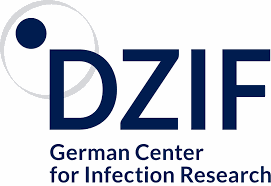Main Content
Investigation of new antiviral agents against highly pathogenic coronaviruses
Animal coronaviruses can cause severe disease in humans under conditions that are still poorly understood. The first time such zoonotic transmission triggered a pandemic was in 2003, when the SARS coronavirus was transmitted from fruit bats to humans via civets or larval rollers. A recent example of a pandemic caused by coronaviruses is SARS-CoV-2, which triggered the COVID-19 pandemic. The rapid generation and testing of antiviral agents is essential for the timely development of antiviral drugs that can be used against different coronaviruses to contain an outbreak. In this project, the Institute of Virology is working closely with the University of Lübeck as part of the German Centre for Infection Research (DZIF) to test new compounds for their efficacy against various coronaviruses in vitro and in vivo. Various substances are first tested for their inhibitory efficacy in primary human cell culture systems and then suitable and promising candidates are investigated in animal models. In this way, we obtain important preclinical data, which are the basic prerequisite for further clinical studies. Close cooperation between the departments of biochemistry (Lübeck) and virology (Marburg) means that both areas of expertise can be used to develop rapidly effective inhibitors against a wide range of coronaviruses.
Project Lead:
Lucie Sauerhering
Staff members:
Alexandra Kupke, Pauline Neubecker, BSL-4 Animal Facility
Project Partners:

Funding:
